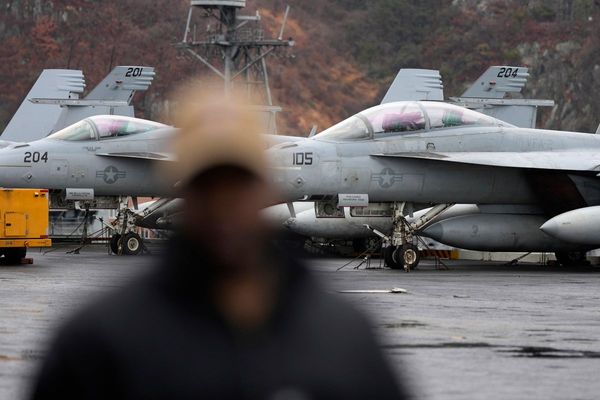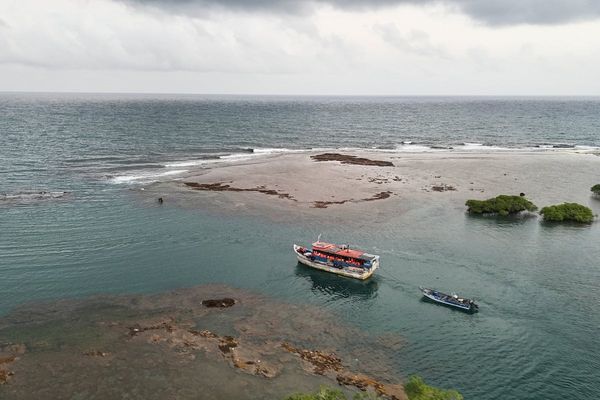
Elon Musk marked the official start of production at Tesla’s new Giga Texas plant in Austin, saying it’s the country’s biggest factory by size and will also be the highest-volume U.S. auto plant when fully ramped up.
Speaking to more than 1,000 invited guests and fans of the brand packed into the sprawling facility for what Tesla called a “Cyber Rodeo” late Thursday, Musk said the plant will produce at least 500,000 vehicles annually by next year. Initially, it will make Model Y hatchbacks, with the hard-edged Cybertruck pickup going into production next year, along with a new version of the Roadster sports car and Tesla Semi.
“The Model Y line will be the highest-capacity line, I think, of any line in the world. In fact, I’m confident it will be,” Musk, dressed in a black cowboy hat, black sunglasses and black Giga Texas T-shirt, told attendees. “Half a million units a year in a single factory of one product is the biggest dang thing in the world. This will be the highest volume car factory in America.”
The Texas plant opens as the outlook for Musk’s company has never been stronger, as climate change worries and rising oil prices boost demand for electric vehicles. When fully ramped up, the Austin factory—with Tesla’s new Giga Berlin plant, its fast-growing Shanghai Gigafactory and Fremont, California, plant—could give the company capacity to build about 2 million vehicles annually within the next few years. That’s more than double what Tesla produced in 2021.

Opened in less than two years since the start of construction the Austin facility is the second new Tesla plant in a month, following the delayed opening of Giga Berlin in March. Both facilities are a major step for a carmaker that’s still less than 20 years old and will likely help Tesla maintain its current status as the world’s top electric vehicle manufacturer for the foreseeable future.
Still, the company’s growth may be restrained this year by an ongoing shortage of computer chips and greater competition for the raw materials needed to make batteries from automotive rivals. Water is also a concern for both the Austin and Berlin plants.
“Right now Tesla has a high-class problem of demand outstripping supply with this issue now translating into ~5-6 month delays for Model Ys, some Model 3s in different parts of the globe,” Dan Ives, an equity analyst for Wedbush Securities, said in a research note. “The key to alleviating these issues is centered around the key Giga openings in Austin and Berlin which will alleviate the bottlenecks of production for Tesla globally.”
Unlike Tesla’s original Fremont plant, which consists of multiple, separate buildings, Giga Texas is one massive facility housing all manufacturing operations under one roof, including a new battery line that will make packs on-site for vehicles built there. In total the facility is 338 million cubic feet, or 15 city blocks, Musk said. “It’s equivalent to three Pentagons.”
In addition to building vehicles, the billionaire entrepreneur said the plant will also produce the Optimus humanoid robot as early as next year, a product that Musk has frequently touted since unveiling it—in the form of a person in a robot suit who danced on stage–at Tesla’s AI day in 2021. Though he remains optimistic about the product, analysts and robotics experts don’t appear to share Musk’s enthusiastic outlook.
The new multi-billion-dollar Texas plant is designed for maximum efficiency and will make vehicles using mainly three major components: a rear portion made from a single casting, a battery pack that’s designed as the vehicles’ structural undercarriage and front section also made from a single metal casting.
“Just like with modern airplanes, where the wing is a fuel tank in wing shape, with the new Model Y architecture, the (battery) cells themselves carry load. That results in a car that is lighter, with a small number of parts, cost less and improves the crash performance, so it’s a safety advantage, too,” he said. “It's a revolution in car manufacturing to basically make a car out of three major parts.”
Shares of Tesla, the world’s most valuable automaker with a market cap of more than $1 trillion, fell 3% to close at $1,025.49 in Nasdaq trading on Friday.







